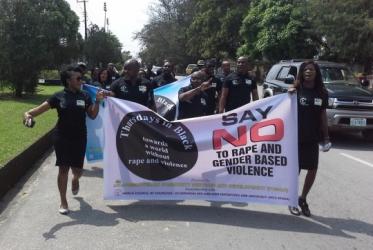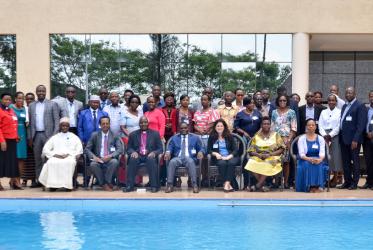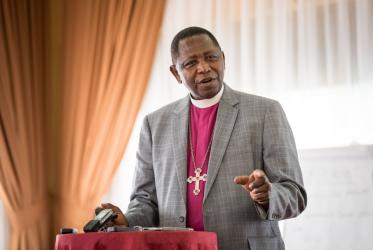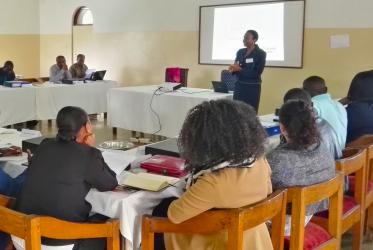Displaying 81 - 100 of 186
In Nigeria, Thursdays in Black is flourishing
26 March 2018
La iniciativa "Jueves de negro" prospera en Nigeria
26 March 2018
WCC-EHAIA pioneer receives honorary doctorate
21 March 2018
Conversation on HIV “must continue,” Faith Networking Zone shows
07 December 2017
“God has brought ways of defeating HIV”
31 October 2017
Ugandan Mothers’ Union leader helps overcome HIV
31 October 2017
“Good healthcare a right, not a privilege,” says WCC-EAA
11 October 2017
“Facing the storm of HIV, we can move together, be agents of change”
06 September 2017
African youth takes stand at first ever WCC Eco-School
03 August 2017













